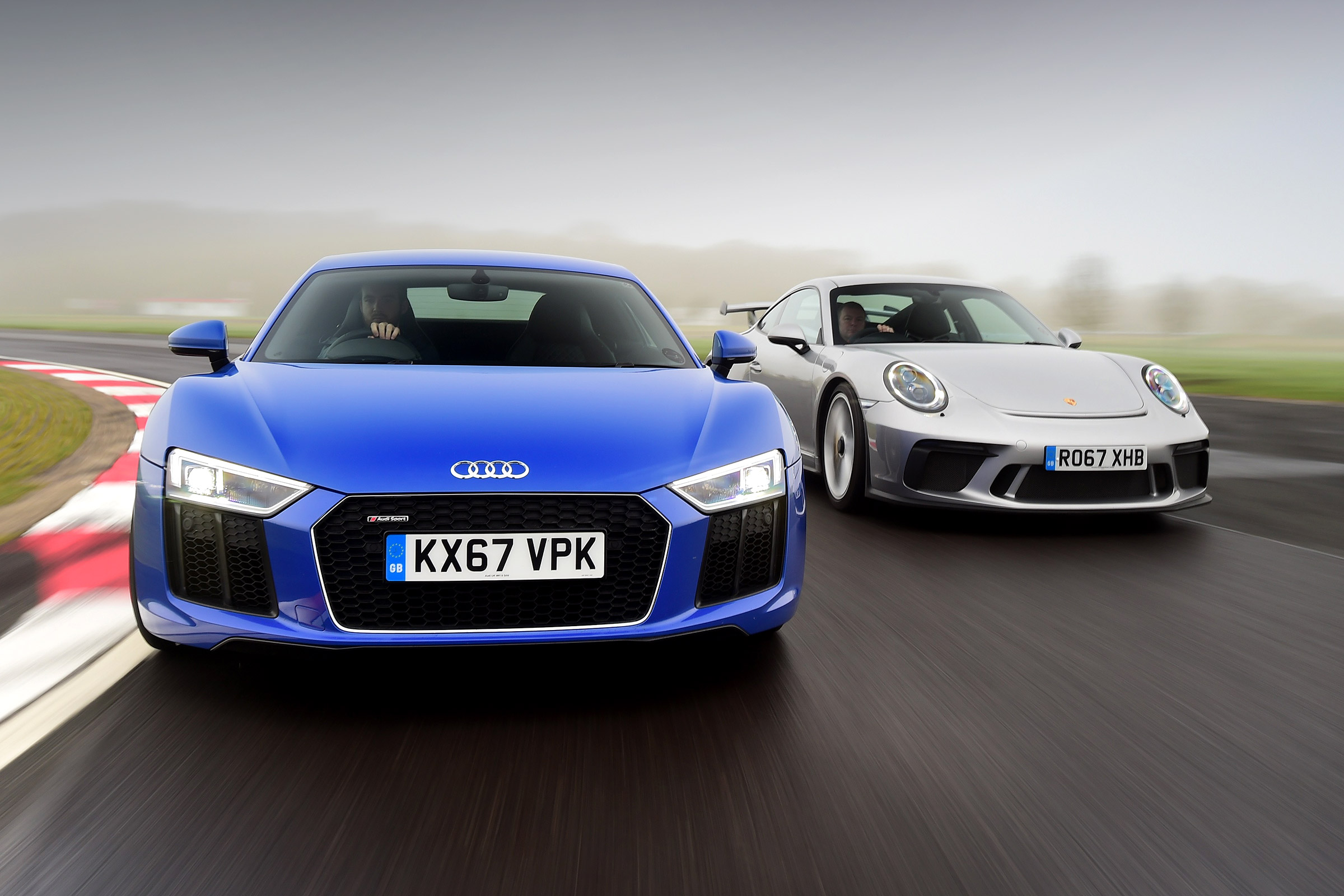The Rivalry Between Porsche And Audi: A Detailed Look
Share

When it comes to high-performance vehicles, two names stand out in the automotive world: Porsche and Audi. Both brands have made significant contributions to the automotive industry, and they are often compared for their engineering, design, and driving experiences. In this blog post, we’ll explore the fascinating rivalry between Porsche and Audi, examining their history, iconic models, and the unique features that set them apart.
A Brief History of Porsche and Audi
Porsche was founded in 1931 by Ferdinand Porsche, initially as a vehicle development consultancy. The brand’s first production vehicle, the Porsche 356, was introduced in 1948. Since then, Porsche has become synonymous with iconic sports cars, particularly the legendary Porsche 911.
Audi, on the other hand, has a richer history that dates back to the early 20th century. The company was founded in 1909 by August Horch, and the very name "Audi" is derived from the Latin translation of “Horch,” which means “listen.” Audi made a name for itself with innovations in technology and design, especially in all-wheel-drive systems.
Both brands are now part of the Volkswagen Group, further intertwining their fates and leading to friendly competition in various markets.

Performance: Power and Precision
One of the most compelling aspects of the Porsche and Audi rivalry is their focus on performance. Porsche has always been committed to producing lightweight, driver-focused vehicles. The performance of cars like the Porsche 911 and the 718 Cayman has made them benchmarks in the sports car world. Known for their precision engineering and outstanding handling characteristics, these vehicles provide an engaging driving experience that enthusiasts crave.
Audi, while also producing performance-oriented models, often emphasizes technology and comfort. The Audi RS series, including the Audi RS 6 and RS 7, showcase the brand’s ability to meld high performance with luxury. Equipped with cutting-edge technology and sophisticated interior refinements, Audi vehicles appeal to those seeking both speed and comfort.
Design: Stylish Aesthetics vs. Functional Elegance
Both brands have their unique design philosophies. Porsche’s design language has evolved over the decades but retains a classic, timeless appeal, particularly in the 911 model. The distinctive round headlights and sloping silhouette are instantly recognizable, providing a sense of heritage and style that resonates with enthusiasts.
In contrast, Audi’s design is characterized by sleek lines and a minimalistic approach, reflecting modern aesthetics and functionality. Elements like the signature Singleframe grille and aggressive stance make Audi vehicles stand out on any road. Additionally, both brands have explored their designs in motorsports, leading to unique editions that capture the spirit of racing while staying true to their roots.

Iconic Models: Comparing Legends
When delving into the models produced by both brands, certain vehicles become legends in their own right. The Porsche 911, in its many iterations, has redefined the sports car segment. With its rear-engine layout, powerful flat-six engines, and exceptional handling, the 911 continues to be a favorite for driving purists.
By comparison, Audi's Quattro models, particularly the Audi S4 and RS4, have changed the performance sedan landscape. The Quattro all-wheel-drive system revolutionized racing and performance driving, enabling Audi to achieve numerous victories in motorsports, including the World Rally Championship.
In recent years, the Porsche Taycan has made waves in the electric vehicle market, blending Porsche's performance heritage with cutting-edge electric technology. Meanwhile, the Audi e-tron series showcases Audi's commitment to electrification while maintaining an emphasis on luxurious designs and advanced technology.

Technology: Innovation and Engineering Excellence
Both Porsche and Audi take pride in being at the forefront of automotive technology. Porsche has made significant strides in lightweight materials, such as the use of aluminum and carbon fiber in their designs. Their vehicles often feature advanced aerodynamics, contributing to improved performance and efficiency.
On the technological front, Audi is recognized for its pioneering efforts in driver assistance systems and infotainment technology. The brand's Virtual Cockpit is a prime example of how Audi integrates cutting-edge technology into their vehicles, providing drivers with intuitive access to information.
The Future: What Lies Ahead for Porsche and Audi?
As the automotive industry faces challenges such as electrification and sustainability, both Porsche and Audi are poised to embrace the future. Porsche has committed to a significant electric vehicle lineup, with a focus on maintaining the performance ethos that drives the brand. The Porsche Macan EV is already generating interest, showcasing Porsche's ambition for the electric future.
On the other hand, Audi's focus on electric vehicles includes the expansion of the e-tron family, which aims to deliver high-performance, luxury EVs tailored to the evolving preferences of consumers.

Conclusion: A Legacy of Performance and Passion
The rivalry between Porsche and Audi is not just a battle for sales; it represents a broader cultural and technological discourse within the automotive industry. Both brands bring unique strengths to the table, from Porsche’s pure sports car lineage to Audi’s engineering innovations and luxurious features.
Whether you're drawn to the raw, exhilarating performance of a Porsche or the refined technological prowess of an Audi, both brands continue to define and push the boundaries of what’s possible in performance automotive. As we look forward, the excitement surrounding both brands is sure to evolve, making it an exciting time for enthusiasts and consumers alike.